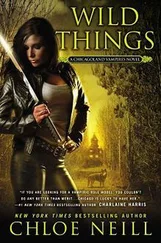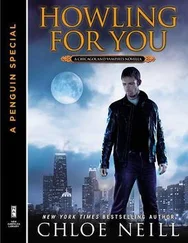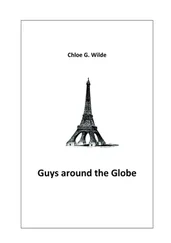I sent photos of myself, the most flattering ones I could find, and imagined them taped to the wall by his bed or stowed under his mattress. He never told me why he was there. I never asked.
A few months into our correspondence, David Murphy changed address. He was being moved, or ghosted, to Belmarsh, a Category A prison in Greenwich for prisoners whose escape would pose a serious threat to national security. I found this out later. At the time, the name Belmarsh sounded like a stately home, much more elegant than Wormwood Scrubs, so I assumed it was a nicer place, for more refined criminals.
It was clear we would never meet. Every now and then I’d offer to visit but he never responded to my question. I finished school, started university, dropped out, moved to London and began at Compendium, then at my second job, then my third. I dated appropriate and inappropriate individuals, moved flat and flatmates. Through it all, I continued writing to David Murphy.
And then one summer’s night I was skimming the news on the BBC website when I read that two convicts, both jailed on multiple charges of murder, had escaped from Belmarsh that evening. Across the country search parties (dogs, helicopters, sirens) had been dispatched. A telephone number was provided should anyone have leads. For the first time ever, I saw his face. As a mugshot on the computer screen. It was haggard, but not in the way I’d imagined. He had lots of stubble, and his hair wasn’t as long as I’d pictured it, in fact he had a close prison shave. But his eyes were what startled me the most.
Panic set in. He knew exactly where I lived, the address of my current flat and all the ones before. Of course he would come looking for me, perhaps even ask for shelter. I packed a suitcase and went to stay with friends in Forest Hill. I checked the street, peered out of every window, was tempted to change name, job, city.
Yet David Murphy never came. In fact, I never heard from him again. A small part of me was, I admit, disappointed, and for a time I kept half hoping he would pop up somewhere, that I’d turn a corner and there he’d be. As far as I know he has yet to be caught. It’s unlikely he stayed in the country. He probably jumped on a freighter and is now in the wilds of New Zealand or Brazil, where he’s started a new, sanitised life, maybe even a family. Every now and then, I wonder.
After so many years at the job I considered myself an expert in the sounds produced by different shoes on wooden floorboards. Clogs were the loudest but had gone out of fashion. So had most platforms and cowboy boots. Sandals with cork-filled soles made the least noise. Trainers too, nearly inaudible. Boots with traction produced a muffled crunch, like dog paws on snow. Heavy boots with metal buckles, usually on the feet of long-maned men from Scandinavia, sought an audience as much as the paintings. There must’ve been a shift in footwear over the years however, since the old-fashioned click clack so familiar in films had been generally replaced by less dramatic entrances.
Whenever I felt like detaching myself from what was around me, rather than listen for shoes I’d try to block out all sounds and focus on the reflections of visitors in the polished wooden floors. Every visitor at the Gallery has a double that wanders through the rooms with him, and in rooms where the wood is especially shiny the reflected double is nearly always more vivid and beautiful than the human above. As the afternoons wore on and the reflections diminished, my attention would then move to the shifts in light, and I would try to guess how long till closing time without checking my watch.
Shadows and reflections would’ve been different in my great-grandfather’s day, when Gallery illumination was an evolving theme. With the lanterns that were first used the pictures received too much light, he said, and visitors could see their reflections in the protective glass more than the pictures themselves. Skylights proved much better: light poured into the centre of the room, bringing the work to life.
In Ted’s day, too, there was no rotation, nor female warders. Heating came into existence rather slowly; certain draughty rooms lay in the dreaded pneumonia wing. Overcrowded London elbowed its way into the rooms of the Gallery. Warders had to rise from their chairs when spoken to, figures on standby that would go from L to l when addressed and from l to L when released, a constant movement between upper case and lower. Fog or darkness could cause the Gallery to close at short notice. Outside, horses would stand hitched to carriages for hours like thaumatropes at rest. All these details never ceased to have a hold on Ted and as they had a hold on Ted they had a hold on me.
Even in his twilight, when I would visit him in his two-room cottage in Yorkshire, my great-grandfather would return to the events of 10 March 1914. He had heard some of the commotion the suffragettes had been making, of their ardent campaign for the female vote, but had never imagined he would witness anything so dramatic firsthand. Mary Richardson provided Ted with the story of his life. Even the events of the Great War did not diminish the moment this young suffragette, drum major for the Women’s Social and Political Union’s Fife and Drum Marching Band, took a chopper to ‘his’ Venus; this story belonged to him, though it failed to make him a hero.
As a young girl I would listen on, fascinated yet pretending to be horrified, as he explained how the suffragettes were to blame for the collapse of society as he knew it, and how these national outrages, as he called them, were harbingers of the great European disorder to come. Even if he had caught her in time that day, it was too late. There was already disorder in the nation. Disorder in the Gallery. Disorder on the Continent. It was all linked, Ted would say, all linked. At the heart of everything lay grief and disorder, and swishing through this disorder was a phalanx of long, intransigent skirts.
His tone was so grave and prophetic, I rarely questioned anything he said, forgetting the cramp in my leg as he spoke about how in those years he was the first to admit that life as he knew it, meaning his England, would never be the same. It began with those viragos, he’d tell me, comets detached from the firmament, deviant and sharply veering, long-haired vagabond stars, hissing through the universe on their solitary paths, a tear in the social fabric, threats to the status quo. Yet once war broke out, Ted said, their battle, eclipsed by larger events, became no more than one of many lit matches in the stratosphere.
By then he had entered so far into the past, a brittle figure collapsed into his armchair travelling through decades when he scarcely had the strength to cross the room, that all I could do was let myself be pulled along with him, even when I’d heard the stories countless times and wasn’t sure what to make of them, feeling more excitement than dismay. My affections had skipped two generations; I was never close to anyone in my family and he was the only relative whose stories ever really enthralled me.
In his head he was always turning them over, a mental exercise during which he rarely stumbled on a fact or figure. Winters when I’d visit we would sit by the radiator, and every hour or so he would place a coin in the palm of my hand to feed into his meter, as if the retrieval of his memories depended on it. He would tell me of the night in early May 1910 when Prime Minister Asquith, aboard his yacht the Enchantress , received news that King Edward VII had passed away. Saddened by these tidings, Asquith went out on deck and gazed into the darkened sky. At that moment, Halley’s Comet came blazing overhead like a lit sword. There was our prime minister, alone with this punctual omen in the night sky, while in those years, back home, other fires were being kindled.
Читать дальше












